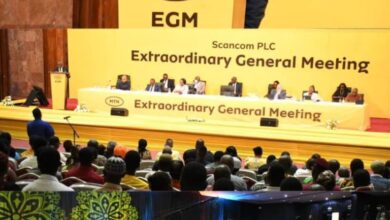Ghana Risks Losing Billions in Green Capital as Policy Gaps Scare Off Investors MTN, Deloitte Warn
Ghana Risks Losing Billions in Green Capital as Policy Gaps Scare Off Investors MTN, Deloitte Warn

Share this
Ghana Risks Losing Billions in Green Capital as Policy Gaps Scare Off Investors MTN, Deloitte Warn

Ghana risks losing out on billions of dollars in global green investment if it does not urgently streamline and strengthen its sustainability policy framework, experts from MTN Ghana and Deloitte have warned. The caution was issued during the latest edition of Bright Conversations, where industry leaders assessed Ghana’s readiness for the rapidly evolving green economy.
Global Competition for Green Capital Intensifies
Around the world, investors are shifting their attention and resources toward countries that demonstrate strong environmental governance, climate resilience, and long-term sustainability planning. These standards are now shaping investment decisions across sectors such as energy, agriculture, technology, mining, and infrastructure.
According to the experts, nations that present clear, predictable, and coordinated sustainability policies are becoming top destinations for climate-conscious investors. Unfortunately, Ghana’s current policy landscape described as fragmented, slow-moving, and inconsistent poses a significant threat to its ability to compete on this global stage.
Adwoa Wiafe: Policy Fragmentation Weakening Investor Confidence
MTN Ghana’s Chief Corporate Services and Sustainability Officer, Adwoa Wiafe, delivered one of the strongest messages at the forum. She highlighted that Ghana’s sustainability framework lacks the policy alignment and long-term clarity investors require before committing large-scale green capital.
Wiafe noted that multinational companies are increasingly expected to integrate sustainability into their core operations and supply chains. This means they prefer markets where governments offer clear direction, enforceable environmental standards, and strong institutional structures.
“Investors want to enter markets where sustainability is not an afterthought but a national priority,” she stated. “When policies are fragmented, inconsistent, or unpredictable, it creates uncertainty and investors simply move to countries with better clarity.”
She emphasized that sustainability is not just a compliance box to tick, but a catalyst for innovation, operational efficiency, and community development. According to her, companies like MTN Ghana are incorporating sustainability into long-term strategy to ensure shared value for both business and society.
Deloitte Experts Highlight Missed Opportunities
Representatives from Deloitte added that green investment flows into Africa are expected to surge in the coming decade as global markets accelerate climate financing. However, countries that fail to modernize policy frameworks will lose out on opportunities in renewable energy, green manufacturing, sustainable housing, climate-smart agriculture, and digital sustainability solutions.
They stressed that Ghana has strong potential given its natural resources, youthful workforce, and growing private sector but must do more to position itself as a reliable partner within the emerging green economy.
Ghana at a Strategic Crossroads
The discussion underscored a critical message: Ghana is standing at a major crossroads. While global investors are searching for countries with strong sustainability credentials, Ghana’s current policy delays and institutional gaps could cost the nation dearly.
Industry players warned that other African countries,such as South Africa, Kenya, Rwanda, and Morocco,are moving faster to align their policies with global sustainability trends. Failure to act now could place Ghana at a competitive disadvantage for years.
A Call for Policy Clarity, Stronger Institutions, and National Alignment
Participants at Bright Conversations called for coordinated national action, including:
Harmonizing environmental and sustainability policies across ministries and agencies.
Setting measurable national targets for climate resilience and green growth.
Strengthening regulatory institutions to enforce compliance and provide investor confidence.
Creating incentives for private sector participation in green projects.
Improving data collection and reporting systems to match global sustainability standards.
They argued that a unified national sustainability agenda would not only unlock green capital but also create jobs, improve energy reliability, protect natural ecosystems, and drive inclusive economic growth.
Sustainability as Ghana’s Next Economic Frontier
The experts were unanimous: sustainability is no longer just an environmental responsibility. It has become a core economic strategy capable of shaping Ghana’s competitiveness and long-term development.
With billions in global funding available for climate-friendly projects, Ghana must demonstrate urgency, commitment, and coordinated leadership if it wishes to benefit.
If the country gets it right, it could position itself as a green investment hub in West Africa. But if it delays, the opportunities and the mone,will move elsewhere.




